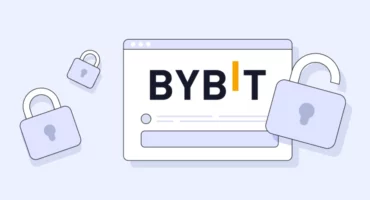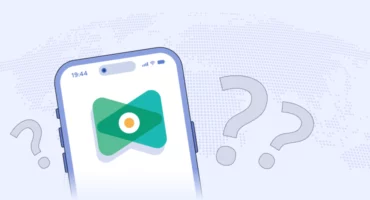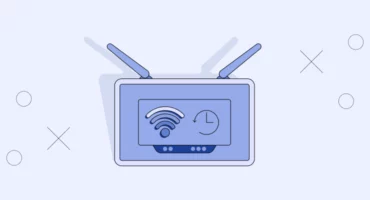How to Be Anonymous Online: 19 Tips to Protect Your Identity
The Internet is full of viruses, spies, and other tools secretly sniffing around. Once you go online, your data becomes visible to many people, from your Internet provider to advertisers and government agencies. Every time you access cookies on a website, post something on your social media, or simply accept privacy policies without reading them, some pieces of your data are recorded, shared, or exposed. Now, is it possible to surf the web without leaving any trace? Keep reading to explore the essential practices and valuable tips on how to remain anonymous online.

Can you be completely anonymous online?
First, let’s answer the most burning question—does online anonymity even exist?
In theory, it is possible to achieve anonymity. But staying anonymous constantly is a way more challenging task. That would require significant effort. You will need to completely revamp your browsing habits, behavior, and general attitude to what you share (or rather not share) online.
There are some examples of people who keep their identities anonymous, from street artist Banksy to the founder of Bitcoin Satoshi Nakamoto (those cases are quite rare, though).
At the same time, many still confuse going completely incognito and simply protecting their personal information online. In fact, while anonymity and privacy are closely related, there’s a drastic difference between these two concepts. Here are some details.
Anonymity vs. privacy: The difference explained
Online privacy means that you control which data you share online, avoid unwanted monitoring, and prevent your confidential information from being compromised. In most cases, it means that you want to stay away from public attention.
In contrast, online anonymity is when you want to go public without exposing your real identity. Usually, this decision is made by activists, journalists, whistleblowers, and artists who prefer to stay unnoticed (mostly because of safety concerns).
You can achieve online security protection and data safety through basic privacy rules. This blog post explains digital privacy concepts and provides daily life strategies for maintaining it. But if your true goal is to hide your identity fully, we will soon explain the main steps to take.
Using private browsing mode allows you to delete your digital footprint, yet this method still does not make you an Internet ninja. Here is why.
How anonymous is incognito mode?
The incognito mode within Google Chrome works as a private browsing mode that ensures your online activities remain invisible after closing the window. This function is equivalent to the private browsing mode (in Safari and Firefox) and the InPrivate mode (in Microsoft Edge).However, it has nothing to do with true Internet anonymity.
The following part outlines privacy aspects and limitations of incognito mode:
| ✅ What incognito mode does | ❌ What incognito mode doesn’t do |
| – Prevents collecting a local record of your browsing and browsing history – Hides your browsing data on your device from other users – Stops the creation or storage of cookies when you close the browsing window | – The incognito mode doesn’t provide protection against hacking attempts and malware. – It fails to conceal your browsing information from third parties including employers and Internet service providers (ISPs), so they know which websites you visited. – It shows your real IP address and network connection details and does not protect your data on public Wi-Fi. |
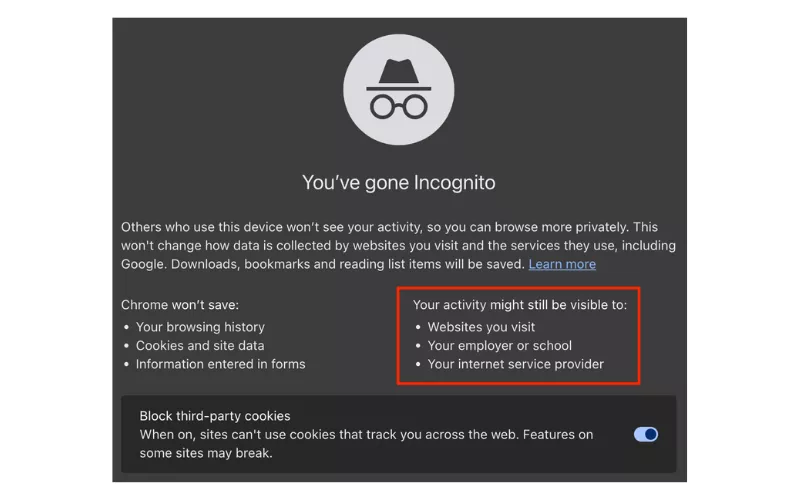
So, using incognito mode alone does not provide enough protection to remain hidden when using the Internet. So, what do you need to do? The following section details essential practices which will help you hide your digital identity.
19 tips on how to stay anonymous online
As mentioned, maintaining anonymity online is a tough challenge that requires a lot of effort, as well as the use of specific tools, programs, and even operating systems. Following one or several of the tips described below won’t make you anonymous. Only combining them all gives you a chance of erasing your trace online. With that in mind, let’s look at the key tips on how to remain anonymous on the Internet.
1. Use a VPN
A virtual private network (VPN) works as an online privacy tool which provides many advantages to users who want to protect their information and maintain online anonymity. Here are the most significant advantages of a VPN:
- It hides your IP address. A VPN spoofs your IP and replaces it with an anonymous address associated with a remote server.
- It encrypts your traffic. Every Internet traffic goes through a VPN and automatically receives complete end-to-end encryption using various tunneling protocols to maintain a secure connection.
- It prevents tracking and security risks. A VPN protects you from tracking attempts and security threats. Using VPN prevents your ISP and websites from spying on your activities along with advertisers and governmental organizations.
But note that not all VPNs come with these benefits. Some may even do the opposite thing, causing more harm than good. In particular, free VPN providers often record and share customer data to make a profit. To avoid this outcome, pick a reputable paid VPN like VeePN, which ensures the following:
- A transparent No Logs policy
- AES-256 encryption
- RAM-only VPN servers
- DNS and IP leak protection
- Double VPN (runs your traffic through two remote locations for greater privacy)
2. Use the Tor browser
The Tor browser is as a vital element in your online anonymity system. Tor has similar functionality like VPNs because it encrypts data and conceals your IP address. Tor distributes your traffic through multiple independent nodes operated by global volunteer network participants (this network operation is called onion routing). Such type of network was first developed to protect American intelligence agents’ communications. As of now, it provides solid privacy services to users who value anonymity like activists and journalists operating in countries with strict Internet censorship.
But keep in mind that Tor is much slower than Chrome, Firefox, Safari, and other common web browsers. Also, note that it encrypts your traffic on the browser level only, while a VPN covers all of it.
3. Use Onion over VPN
The combination of VPN key elements with Tor functions provides users with maximum protection and anonymity. The following procedure demonstrates how to set up Onion over VPN on your device:
- Download and install VeePN.
- Pick a pricing plan and subscribe.
- Activate VeePN by connecting to the preferred server location.
- Open the Tor browser and choose the Safest mode in its settings.
- Done! You’re ready to start your anonymous browsing session.
But the use of Tor together with VPN results in decreased Internet speed because each encryption layer slows down the process. Use this solution only when dealing with something particularly sensitive.
4. Don’t log in to your Google account
Google systematically gathers customer information which primarily uses to deliver advertising content.Once you enter your Google account, you expose many private details, including the following:
- Your precise geolocation
- Your browsing behavior and habits
- Your search history on platforms partnering with Google
- Your interactions, such as likes, comments, and more
The least you can do to cover up your data is logging out of your Google account (and remaining logged out when possible).
5. Use a private web browser
We mentioned Tor as the best encrypted browser out there. But this application’s speeds are slower than Chrome or Edge. Does any risk-free browser solution exist that offers faster performance?
Although no other browser will run your traffic through multiple encrypted nodes, there are a couple of decent options to consider. Good Internet browsers for strong privacy are Mozilla Firefox, Brave, LibreWolf, Iridium, and Ungoogled Chromium.
6. Use a private search engine
We previously explained that Google does not protect user privacy through its search engine functions. Your Google search engine tracks browsing information even when you remain logged out of your Google account. Luckily, there are several private search engines that protect users from unwanted monitoring attempts. Some decent examples include DuckDuckGo, Brave Search, MetaGer, and Mojeek.
Of course, you cannot expect such tailored search results because these search engines operate without tracking individual habits online. But this price you pay for remaining anonymous might be reasonable.
7. Adjust your privacy settings
Digital privacy extends beyond using a particular browser usage and switching to private search engines. You need to modify privacy and security preferences in your devices and applications which you use frequently to protect your digital privacy. Here are some basics in this regard:
- Remove all questionable apps and programs from all devices.
- Don’t install unverified software.
- Limit app permissions and location services on your mobile devices.
- Avoid allowing apps to access your location, microphone, camera, contacts, and other sensitive data that may expose your identity.
Eager to learn more? You can find comprehensive instructions about essential iPhone and Android privacy settings below:
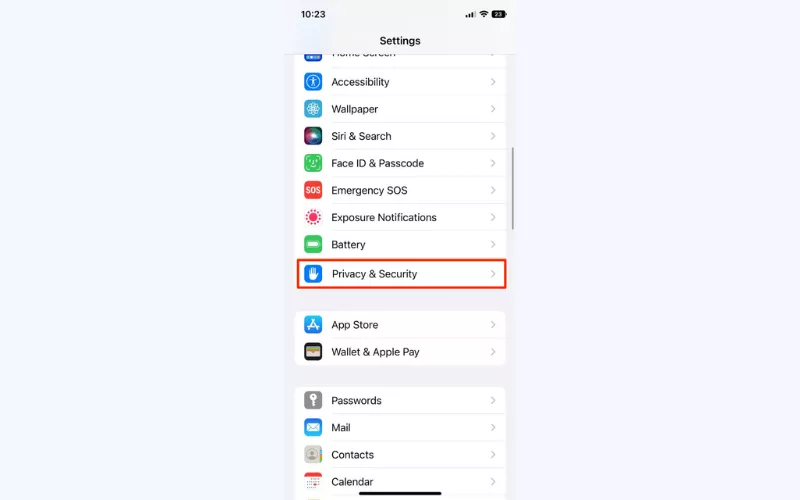
8. Update your software regularly
Old software apps have increased hacking attempts risks because they do not contain essential security updates the new system improvements usually offer. A hacker who steals data from outdated programs will reveal your true identity and may distribute it on the dark web market
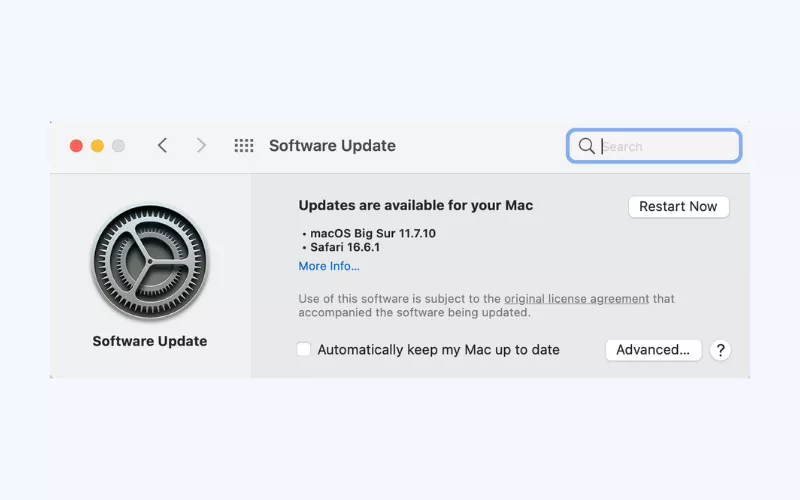
9. Don’t overshare your data on social media
In case you want an complete anonymity, it is better to avoid any social media platforms for communication. The privacy standards on Instagram, Facebook, Twitter (X), Reddit, TikTok, remain unfavorable. Social media pages allow strangers to extract valuable information. Governments can use their sophisticated AI profiling systems to produce detailed profiles about citizens based on the info from social media.
if you cannot leave social media platforms, these steps will help you protect anonymity:
❌ Don’t use your real name in your multiple accounts.
❌ Don’t post any pictures or videos that could potentially link to your real identity and location.
❌ Don’t add your friends, family, and other people you know in real life to any groups or lists.
10. Use encrypted messaging apps
The path to online anonymity requires data encryption as an essential component. Facebook Messenger stands among those messaging applications that doesn’t offer decent encryption and endangers user privacy. Some encrypted applications appear to offer reliable security yet demonstrate critical weaknesses: WhatsApp, for example, has faced major data breaches, while Telegram depends on its own encryption standards instead of proven ones.
Select messaging software that has open-source encryption built-in along with privacy features like no metadata tracking, and data protection compliance, and self-deleting messages. Signal, Wickr Me, and Wire represent these secure applications. Read a comprehensive analysis of the safest messaging applications if you wish to learn more details.
11. Use encrypted email services
Not only your messages, but also emails should be end-to-end encrypted. Popular email services share the same limitation as messaging apps since they do not provide this fundamental encryption protection. In case you need safer communication tools, then choose an alternative to Gmail and Yahoo!, Mail, or Outlook for protecting your confidential messages. The most prominent encrypted email services include Mailbox.org and Tutanota together with ProtonMail.
Also, consider using burner email accounts during registration on websites or platforms. This way, you will avoid sharing your real personal email, replacing it with a temporary address that isn’t linked to you.
12. Use an encrypted data storage
Your personal data like photos and docs stored on Google Drive, OneDrive and iCloud remains at potential risk because these popular platforms don’t offer complete protection. Instead, seek out network encryption in cloud storage services like Sync.com and pCloud as they meet security requirements. The proper protection of your information requires encryption because it turns your real data into unintelligible gibberish if someone gets access to your account.
13. Block cookies
Websites enable tracking through small pieces of data known as cookies. Online services use these cookies to record how long you stay on a page and what actions you take. They later retrieve this stored data to customize your user experience. However, if you want to remain anonymous, this approach doesn’t support your goal.
Users can disable cookies through their browser settings. You can also prevent tracking by using privacy extensions like Ublock Origin or Ninja Cookie. These tools allow users to erase any remaining cookies between sessions. While removing cookies can affect website functionality, it’s important for users to keep this in mind.
14. Use a password manager tool
Creating strong and unique passwordss for every account is a difficult task. The temptation to use the same passwords across different accounts exists because remembering multiple passwords is challenging. When you choose basic or duplicated passwords the same as your login credentials, or “12345”-like passwords, hackers obtain all the information they need to access your digital life.
After breaking into your system they will gain access to all your accounts, including your email, digital money, and social media. Different passwords for all your online accounts together with regular password updates represent the most effective method to prevent unauthorized access.
The password managers like LastPass and Keeper provide secure storage solutions and keep order in all your passwords. It’s better to avoid browser-based password storage because it poses a security risk. Your Google account connection may compromise private information which could destroy your attempts at staying anonymous.
15. Avoid JavaScript
JavaScript is a popular programming language many websites use in their visuals, animations, and other appealing design components. But there’s the other side of the coin: JavaScript collects lots of data about users.
There are ways to block JavaScript completely, but you may not want to do that since it will result in a much more limited online experience. Another option is to use a browser extension like ScriptBlock to keep JavaScript elements active only on trustworthy websites.
16. Use a live OS on your PC
Standard operating systems, like macOS and Windows, may collect your data even if you don’t download any questionable applications. The thing is that certain pre-loaded programs are designed to log your info (mostly, to share it with developers and improve user experience).
If you want to avoid sharing even the smallest pieces of your information, switching to live OS might be your go-to. Such systems usually run through a USB drive, so you should connect it every time you turn on your device. Some famous examples are Linux-based operating systems, such as Porteus, Puppy Linux, Tails, and Linux Lite.
17. Don’t use a smartphone (if possible)
Have you ever felt your smartphone is spying on you? Mobile devices contain various security threats and are the reason of numerous privacy risks. Many apps depend on accessing your location data, microphone, contact information, and other data. So, such apps like Google Maps together with Uber Eats as well as basic weather and fitness applications represent serious privacy concerns.
Ideally, you should avoid using such devices at all, as it’s very difficult to stop them from monitoring you at all levels. But if you can’t do without a smartphone, consider getting as private and secure mobile device as possible. iOS is generally considered more protected than Android. But if you’re striving for anonymity, you need a device with more advanced functionality, such as Purism Librem 5, Blackphone PRIVY 2.0, or Bittium Tough Mobile 2C. Feel free to explore the full list of the best phones for privacy in our blog.
18. Make payments in crypto
The privacy of crypto payments surpasses traditional credit or debit card transactions because crypto transactions are challenging to track. The use of cryptocurrency enables privacy, but users still remain partially identifiable. The use of Bitcoin, Ethereum, and similar coins makes it possible for snoopers to track your activities. The encryption of Monero, Dash, and Zcash crypto coins ensures total anonymity because they cannot be traced back to your digital wallet.
Also, mind the risks associated with cryptocurrencies. Learn about the most widespread crypto scams and fraudulent techniques and stay away from questionable investment schemes.
19. Read privacy policies carefully
Many users accept privacy policies without reading them, which may be extremely harmful to privacy. The presented information warns you about all the potential pitfalls—for example, a website may collect and share your private data with their partner services and other third parties. Accepting the privacy policy removes all possibilities to alter the information after the agreement. You should not skip this step because it may lead to a loss of your anonymity.
Final thoughts
The ability to remain anonymous on the Internet exists, yet complete anonymity may lack certain things you prefer. Achieving full digital anonymity requires major effort, as your current online experience will become less smooth and convenient.
While in some cases anonymity is vital, most people are actually looking to make their online presence more private. And for that purpose, you won’t have to give up all your browsing habits. The fundamental protection against cyber threats can be achieved by following simple rules such as VPN usage and unique password creation.
But no matter whether your goal is to be stay anonymous online or just maintain your digital privacy, a reputable VPN like VeePN is a must. With your IP address hidden and the entire traffic encrypted, you will be able to browse with peace of mind.
Try it out today and check out VeePN’s premium features risk-free with a money-back guarantee!
FAQ
Here are several crucial steps if you want to host an anonymity website:
- Use a premium VPN tool like VeePN.
- Get an anonymous email address.
- Create an anonymous domain name.
- Opt for a privacy-friendly hosting provider.
- Pay for your domain with cryptocurrency.
Yes! Online privacy is a fundamental right of every Internet user. The essential practices you should follow to browse privately include the following:
- Use a VPN.
- Use a private browser and search engine.
- Don’t overshare your data online.
- Manage privacy settings and app permissions on your devices.
- Use an end-to-end encrypted messaging app.
- Create strong and unique passwords.
In theory, you can achieve anonymous status while using the Internet. The process of becoming an requires multiple measures and digital identity concealing tools. If you change Internet habits and fully protect your data, stop the use of apps and services that expose personal information – it becomes possible.
VeePN is freedom

